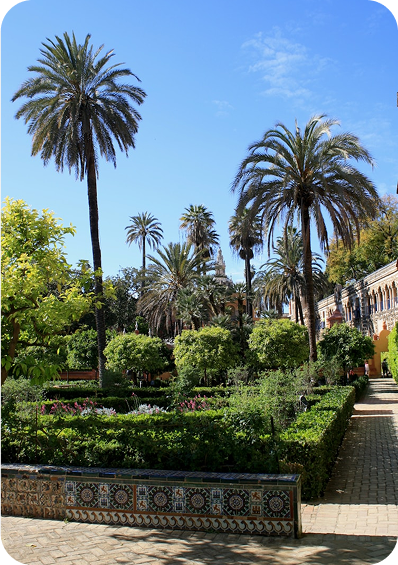About Egypt
Overview of Egypt
Egypt, officially the Arab Republic of Egypt, is a transcontinental country spanning the northeast corner of Africa and the southwest corner of Asia via the Sinai Peninsula. With a rich heritage dating back to the dawn of civilization, Egypt stands as a testament to human achievement and cultural continuity. Home to one of the world’s earliest and greatest civilizations, Egypt has captivated the imagination of travelers, historians, and archaeologists for millennia. From the magnificent pyramids of Giza to the serene waters of the Nile River, Egypt offers an unparalleled journey .
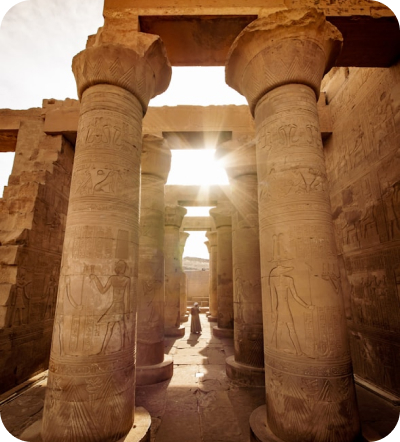
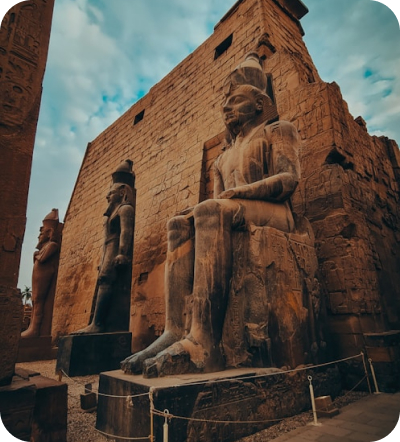
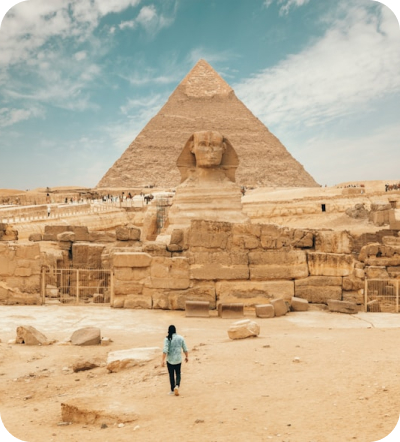
Today, Egypt blends its ancient heritage with a vibrant modern culture. The country continues to be a major political and cultural center in the Middle East and North Africa region, while remaining one of the world’s most popular tourist destinations.
The Rich History of Egypt
From prehistoric settlements to modern nation-state, Egypt’s 5,000+ years of recorded history represent one of humanity’s greatest continuous civilizations.
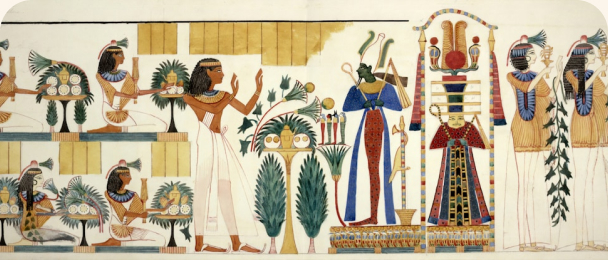
Ancient Egypt (c. 3100 BCE – 332 BCE)
Watch the highlights our successful conference Established in 1979, the International Atherosclerosis Society is a global network of the world’s leading atherosclerotic cardiovascular disease experts who collaborate to develop mission centered programming that spans geographical and generational boundaries.ce and networking events .
The society represents more than 40,000 clinicians in more than 70 countries. More than 65 professional societies maintain an active membership in IAS, which represents them via the World Heart Federation. IAS is organized as a 501(c)(3) educational public charity with an international headquarters in Washington, D.C.
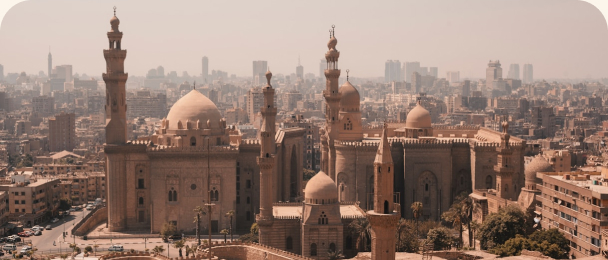
From Ptolemaic to Modern Egypt
Following Alexander the Great’s conquest in 332 BCE, Egypt came under Ptolemaic rule, with Alexandria emerging as a center of Hellenistic culture. The Roman period began with Cleopatra VII’s defeat in 30 BCE, followed by Byzantine rule and the Arab conquest in 641 CE, which introduced Islam and Arabic culture.
The following centuries saw various Muslim dynasties rule Egypt, including the Fatimids, Ayyubids, and Mamluks. Ottoman control began in 1517, lasting until Napoleon’s brief occupation (1798–1801). Muhammad Ali Pasha’s dynasty modernized Egypt in the 19th century, though British occupation from 1882 limited independence until the 1952 revolution established the modern republic.The society represents more than 40,000 clinicians in more than 70 countries. More than 65 professional societies maintain an active membership in IAS, which represents them via the World Heart Federation. IAS is organized as a 501(c)(3) educational public charity with an international headquarters in Washington, D.C.
Alexandria: Pearl of the Mediterranean
Founded by Alexander the Great in 331 BCE, Alexandria remains Egypt’s second-largest city and a cultural treasure

Hilton Green Plaza Hotel
During the Hellenistic period, Alexandria emerged as a center of learning and culture in the ancient world. The city was home to the legendary Library of Alexandria, which aimed to collect all the world’s knowledge, and the Pharos Lighthouse, one of the Seven Wonders of the Ancient World.
Alexandria’s cosmopolitan character developed through centuries of Greek, Roman, Byzantine, Islamic, and European influences. The city was a melting pot where Egyptian, Greek, Jewish, and other cultures coexisted and exchanged ideas, creating a unique Alexandrian identity that persists to this day.

Modern Alexandria
Today’s Alexandria is a bustling Mediterranean port city with approximately 5.2 million inhabitants. While preserving its rich heritage, the city serves as an important economic center with industries including shipping, manufacturing, and tourism.
The spirit of Alexandria’s intellectual legacy lives on in the Bibliotheca Alexandrina, a modern library and cultural center opened in 2002 near the site of the ancient library. This architectural marvel houses millions of books, multiple museums, art galleries, and research centers dedicated to preserving knowledge and promoting cultural dialogue.
Must-See Attractions in Alexandria
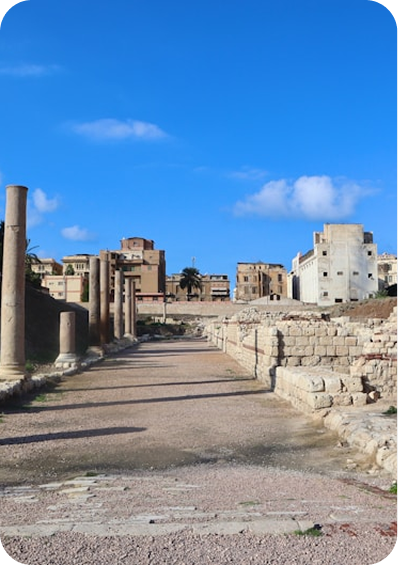
Catacomb of Kom El Shoqafa
A remarkable fusion of Egyptian, Greek, and Roman funerary art in this underground necropolis dating from the 2nd century CE.
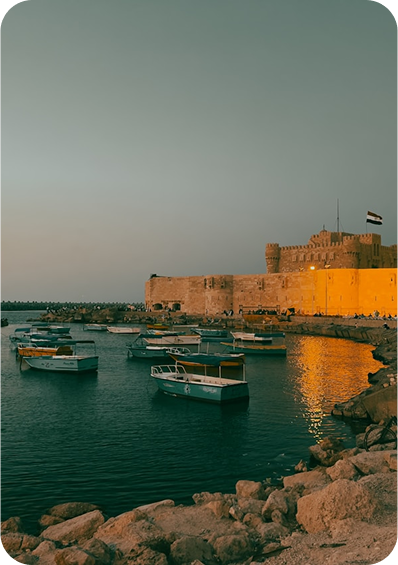
Qaitbay Citadel
15th-century defensive fortress built on the site of the ancient Pharos Lighthouse, offering stunning views of the Mediterranean.
